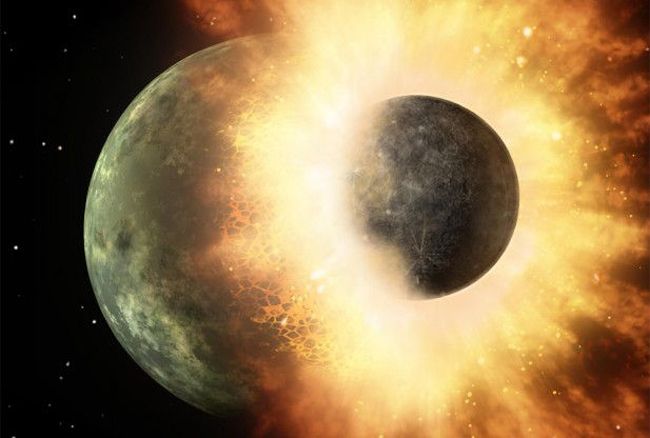The gigantic impact that created the moon was actually a one-two punch, a new study suggests.
Scientists think that the moon, our planet's only natural satellite, was born in violence, coalescing from the material blasted into space after a Mars-size body named Theia slammed into the proto-Earth more than 4.4 billion years ago?
"The standard model for the moon requires a very slow collision, relatively speaking, and it creates a moon that is composed mostly of the impacting planet, not the proto-Earth, which is a major problem since the moon has an isotopic chemistry almost identical to Earth," lead author Erik Asphaug, a professor at the University of Arizona's Lunar and Planetary Laboratory (LPL), said in a statement.
"The double impact mixes things up much more than a single event, which could explain the isotopic similarity of Earth and moon, and also how the second, slow, merging collision would have happened in the first place," Asphaug said.
Indeed, such bouncing smashups were probably about as common as accretionary mergers in the ancient inner solar system, the same research team reports in a second new study.
They found that Earth likely acted as a sort of shield for Venus, taking the brunt of hit-and-run first impacts.
"The prevailing idea has been that it doesn't really matter if planets collide and don't merge right away, because they are going to run into each other again at some point and merge then," Alexandre Emsenhuber, the lead author of the second study, said in the same statement.
"You would think that Earth is made up more of material from the outer system because it is closer to the outer solar system than Venus," Asphaug said.
"But actually, with Earth in this vanguard role, it makes it actually more likely for Venus to accrete outer solar system material.".
